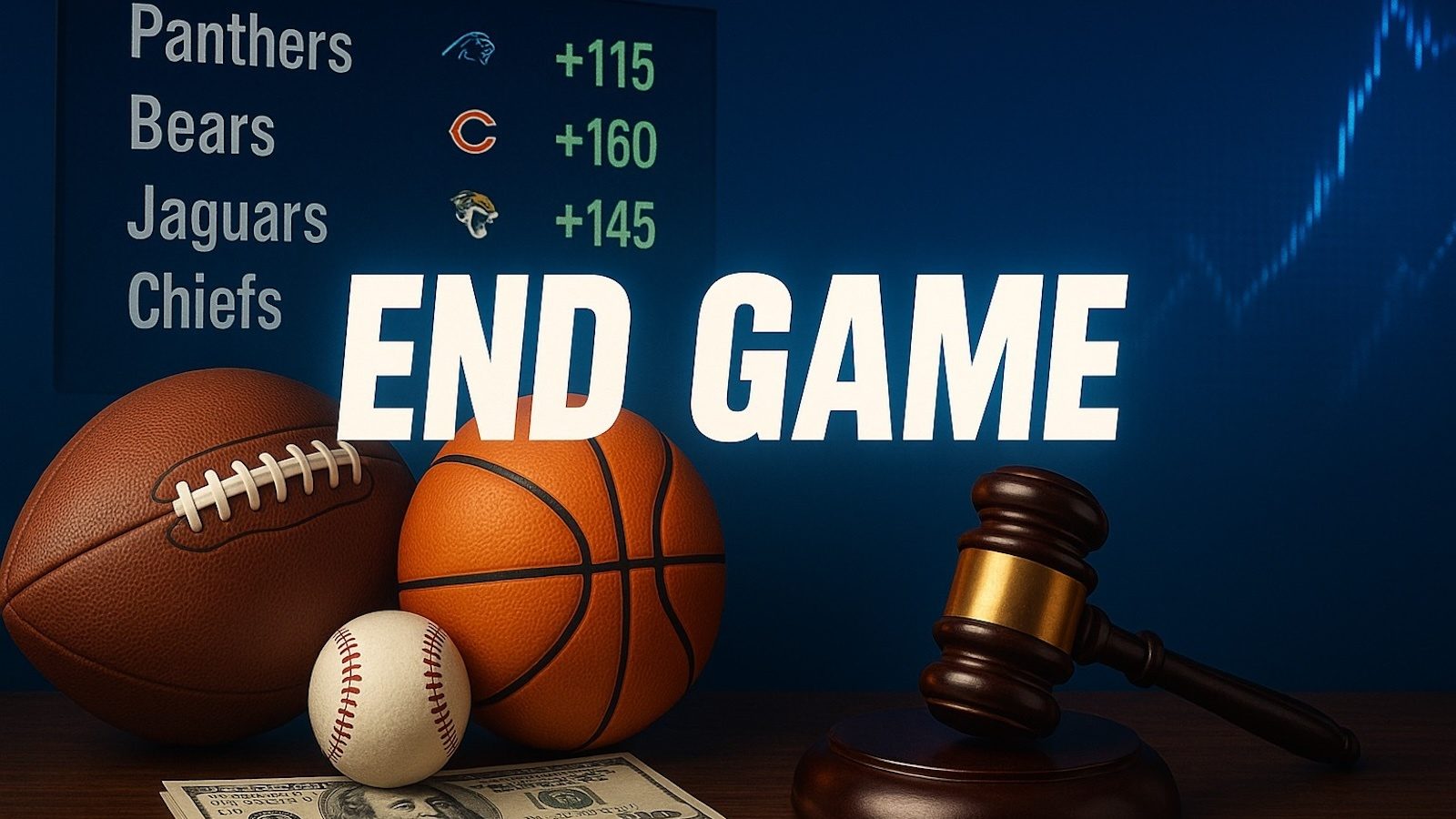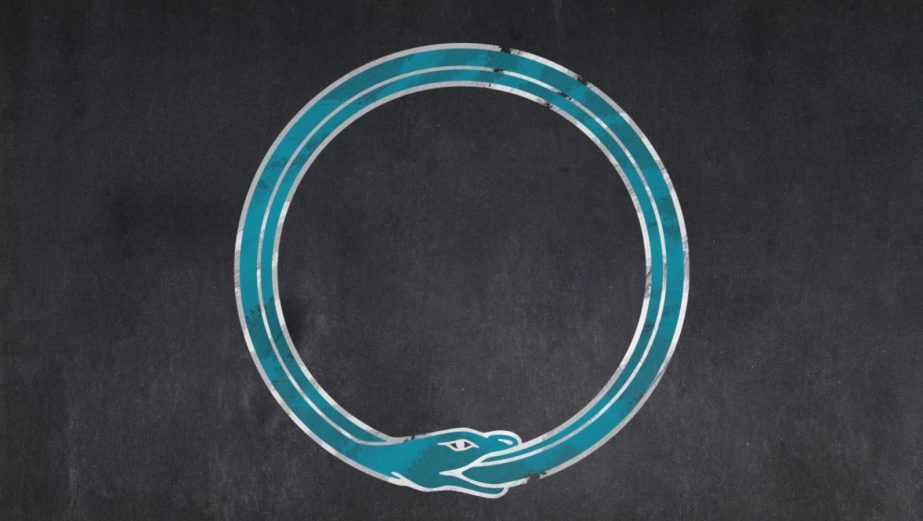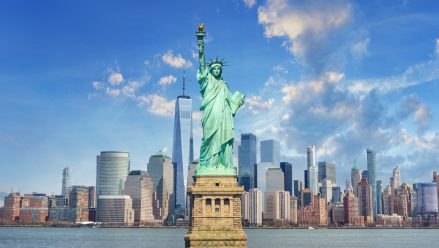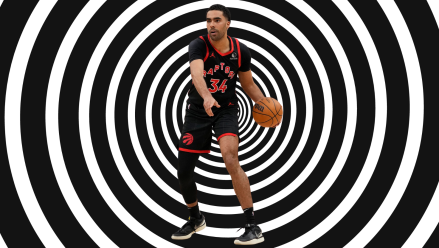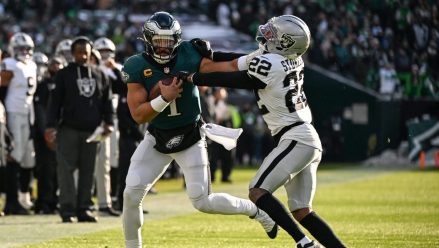The U.S. sports betting world moves quickly and unpredictably in 2025. In order to properly take stock of it all, we offer InGame’s “EndGame,” an end-of-week compilation of the top storylines, some overlooked items, and all the other news bits from this past week that we found interesting.
Polymarket offers ‘up/down’ stock bets
Polymarket edged closer to what has traditionally been the turf of the Securities and Exchange Commission (SEC) this week by offering trades on whether specific stocks will close the day up or down.
Currently, the single-stock markets all concern tech firms, mostly “magnificent seven” members like Tesla and Nvidia, but with non-megacap companies like Rocket Lab and Opendoor included, too. Polymarket still hasn’t launched its U.S. site, meaning the contracts are only available outside the country.
Missouri: New Underdog deal, licenses coming
Ahead of the Missouri Gaming Commission’s target date of next Wednesday to award sports betting licenses, Underdog on Tuesday announced a marketing partnership with the St. Louis Blues. The regulator is set to launch live sports betting Dec. 1.
Underdog, which has applied for a mobile sports betting license, previously announced market access via the Kansas City Royals Sept. 29. Through the Blues’ partnership, Underdog will host in-person activations at the Enterprise Center and will also eventually be able to use Blues IP for marketing.
Underdog joins national operators bet365, BetMGM, Caesars Sportsbook, Fanatics Sportsbook, FanDuel, and Penn Sports Interactive in applying for tethered wagering licenses. Circa Sports and DraftKings in August were awarded the state’s two stand-alone mobile licenses and have also submitted applications.
What did you say?
Kalshi Head of Corporate Development Sara Slane made a comment to The Nevada Independent‘s Howard Stutz that has since been making the rounds — and not in a good way — on X and other social media platforms.
“The federal government is significantly better equipped to regulate financial markets than 50 separate slot machine regulators, which do not have the capacity, expertise, or legal jurisdiction to regulate futures,” Slane wrote in an email to Stutz. “U.S. markets need to encourage innovation and choice in financial services.”
While Slane might be right about “innovation and choice” in the financial world, the wagering industry has been uniting against Kalshi because the company says in court briefs that it offers financial tools but advertises itself as a sportsbook. Before joining Kalshi, Slane was an executive with the American Gaming Association and a wagering consultant.
Kalshi making more news
Kalshi actually made its way onto the national TV news on Wednesday.
Prediction markets like Kalshi have long boasted about their supposed perch as instruments of “truth,” a place where public opinion can be monetized and, in theory, validated. CNN Chief Data Analyst Harry Enten used Kalshi as a barometer of voter mood heading in the 2026 mid-term elections, claiming that prediction market users had Democrats’ chance of retaking the House of Representatives “plummeting.”
Some on social media had reactions:
— Brant James
Maryland regulator proposes rule changes
The Maryland Lottery and Gaming Control Agency (MLGA) last Friday posted six proposed rules updates for sports wagering, including changes to its advertising guidelines and financial bond requirements.
The agency is proposing to add a new definition for “online advertisement,” as well as mandating and putting a size requirement around the text for “gambling assistance messages” on print, TV, outdoor, and online advertisements. The MLGC is also proposing to change the $6 million bond requirement for Class A licensees to a sliding scale of between $2 million and $6 million based on revenue, plus make some changes to technical requirements and internal control standards.
Jason Trost on building a prediction market
A call (of sorts) for a national regulator
Bettors are left with a sense of “betrayal” after match fixing is uncovered, the AI hosts of the Secure Stakes podcast said on Tuesday’s edition. The podcast, hosted by a pair of AI bots, discusses stories written by Secure Stakes founder Matthew Wein. The episode explored who gets hurt by cheating sports bettors, noting that those who feel betrayed often continue to question the integrity of the game and wonder whether what they are seeing is an example of a true competition.
The hosts also point to the “fragmented” sports betting structure in the U.S., where each state has its own licensing process and regulatory framework. “I think the lack of [a unified regulator] is becoming an existential threat to sports integrity here,” one of the bots said.
The hosts pointed to “unified” regulators such as the International Tennis Association as being more effective. As an example, the hosts said leniency at the college level could create bigger problems when players go pro. They pointed to the recent Fresno State and San Jose State scandals in which players ultimately found guilty of violating sports betting rules were suspended, but the suspension had no teeth because the players were in their final year.
PrizePicks gets it right this time
It was another newsy week for PrizePicks, with the daily fantasy sports platform announcing that it would relaunch in New York after satisfying state gambling regulators.
It also put out some fun NBA television spots. InGame wasn’t a fan of its recent NFL commercials, but these latest ads, featuring Allen Iverson, Candace Parker, Sam Richardson, and Drew “Druski” Desbordes, won’t have you hammering the mute button.
— Brant James
Odds and ends
- ForecastEx chairman Thomas Peterffy said in a Q3 earnings call that his prediction market was “not currently contemplating getting into sports betting” despite self-certifying to offer such markets. He said ForecastEx will offer political markets, though.
- Does former San Diego Padres manager Mike Shildt’s sudden retirement have a tie to sports betting? According to The Athletic, Shildt, who pointed to stress and health issues, said he got death threats related to sports betting, but did not offer any details.
- Eight operators have responded to a Rhode Island request for information that could be the first step toward opening the market, the Rhode Island Current reported Oct. 8. International Gaming Technology operates the state’s only platform, run in partnership with the lottery.
- California Attorney General Rob Bonta accepted more than $105,000 in campaign contributions from the state’s tribes in 2023 and 2024 while his office was considering its opinion on the legality of daily fantasy sports (DFS), per Politico’s Playbook last week. The tribes don’t offer DFS but believe it encroaches on their exclusivity to gaming. Bonta in July issued an opinion that DFS is illegal. It is currently unregulated and untaxed.
- Underdog made the no. 3 slot on LinkedIn’s annual Top 50 Startups list, the company announced Wednesday. Underdog moved up from no. 15 in 2024, and it is the third consecutive year that Underdog made the list. LinkedIn measures startups based on employment growth, engagement, job interest, and attraction of top talent.
Check this out …
Could the rise of federally regulated prediction markets push geolocation services out of the wagering business? It’s possible, writes the team from Sportico. While state regulators require geolocation services to prevent bettors from non-legal locations from betting on sites in their states, the Commodity Futures Trading Commission, which regulates prediction markets, has no such mandate. At the same time, there are so far at least two court orders banning prediction markets in two states. Though prediction markets are required to offer impartial access for markets, Sportico reports that the agency may choose not to penalize entities that follow court orders and limit impartial access.
ICYMI on InGame
Tarek Mansour Embraces Everything About Kalshi
Proof Rolling Stone Betting Expose Is Riddled With Lies
Kalshi Says Rule About Prohibiting Gaming ‘Supports’ Sports Event Contract Legality
Nevada Gaming Control Board Warns Licensees Against Prediction Market Involvement
Judge In Crypto.com-Nevada Case Consulted Four Dictionaries In Deciding To Ban Platform
Nevada Gaming Control Board Warns Licensees Against Prediction Market Involvement
Powerful California Tribe Says It Doesn’t Support SBA Wagering Pitch
Analyst Lowers DraftKings, FanDuel Price Targets
Pro League Network: Bringing You Betting On CarJitsu, Slap Fighting, And Coffin Wars

